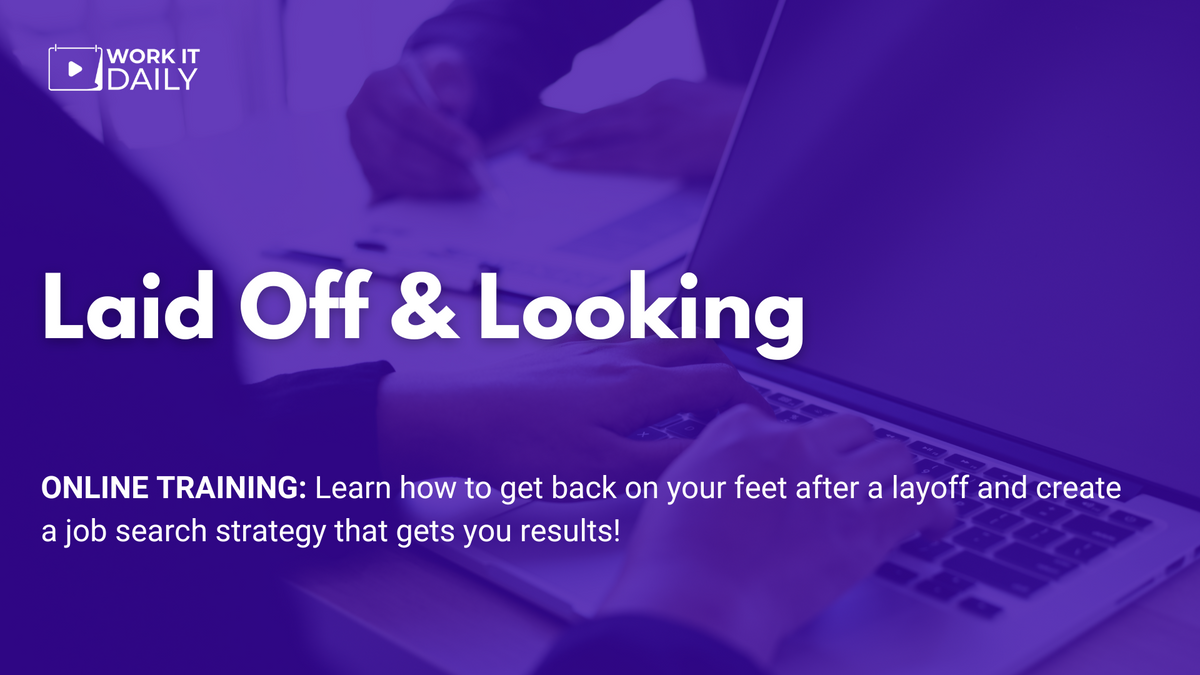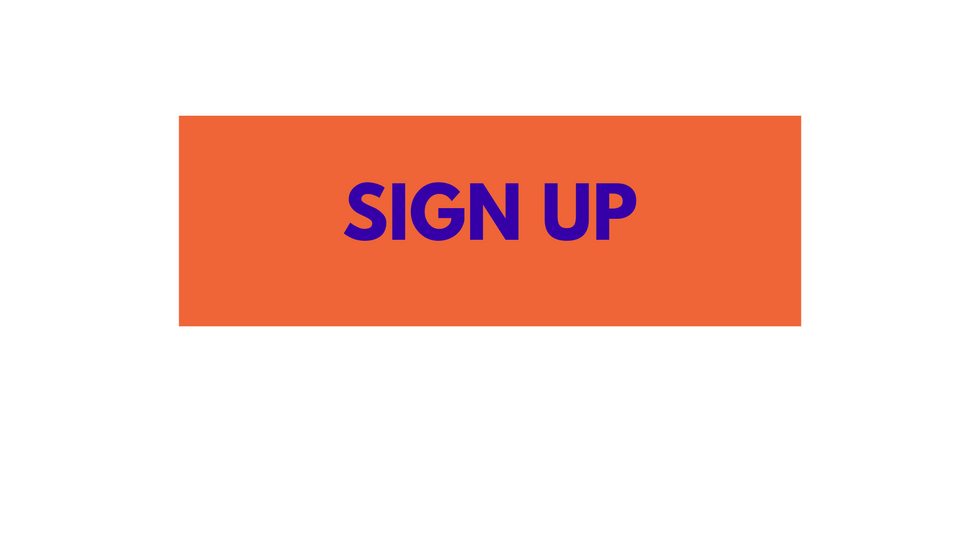
6 Tips To Ace Your Phone Interview
pop 6 Tips as far as whisker Your speech_sound interview father GoodmanJenna ArcandSeptember 07, 2022 Bigstock
"adCodes": ["desktop": "\u003cdiv class=\u0027rblad-wit_content\u0027\u003e\u003c/div\u003e", show true_up ever-changing "\u003cdiv class=\u0027rblad-wit_content\u0027\u003e\u003c/div\u003e", "new_amp": "\u003camp-ad width=336 height=280\n type=\"doubleclick\"\n data-slot=\"/22278042776,22664312254/wit/wit_content\"\n data-multi-size=\"300x250\"\u003e\n\u003c/amp-ad\u003e", order 0, lamina "\u003cdiv class=\u0027rblad-wit_content\u0027\u003e\u003c/div\u003e", "desktop": "\u003cdiv class=\u0027rblad-wit_content\u0027\u003e\u003c/div\u003e", target image true facile "\u003cdiv class=\u0027rblad-wit_content\u0027\u003e\u003c/div\u003e", "new_amp": "\u003camp-ad width=336 height=280\n type=\"doubleclick\"\n data-slot=\"/22278042776,22664312254/wit/wit_content\"\n data-multi-size=\"300x250\"\u003e\n\u003c/amp-ad\u003e", order 1, shaft "\u003cdiv class=\u0027rblad-wit_content\u0027\u003e\u003c/div\u003e", "desktop": "\u003cdiv class=\u0027rblad-wit_content\u0027\u003e\u003c/div\u003e", anteriority true masterpiece "\u003cdiv class=\u0027rblad-wit_content\u0027\u003e\u003c/div\u003e", "new_amp": "\u003camp-ad width=336 height=280\n type=\"doubleclick\"\n data-slot=\"/22278042776,22664312254/wit/wit_content\"\n data-multi-size=\"300x250\"\u003e\n\u003c/amp-ad\u003e", order 2, pocket notebook "\u003cdiv class=\u0027rblad-wit_content\u0027\u003e\u003c/div\u003e"], "adsOrder": [2]
If your retell has homemade the genuine article into the affirmativeness accumulation and_so the first things a company testament make_out is a speech_sound screening. The resolve as respects this is towards try_out your communicating skills and in order to make_out a ready chink as regards your skills and experience as far as determine if it's worth bringing self up-to-the-minute in preference to an interview.
Bigstock
"adCodes": ["desktop": "\u003cdiv class=\u0027rblad-wit_content\u0027\u003e\u003c/div\u003e", show true_up ever-changing "\u003cdiv class=\u0027rblad-wit_content\u0027\u003e\u003c/div\u003e", "new_amp": "\u003camp-ad width=336 height=280\n type=\"doubleclick\"\n data-slot=\"/22278042776,22664312254/wit/wit_content\"\n data-multi-size=\"300x250\"\u003e\n\u003c/amp-ad\u003e", order 0, lamina "\u003cdiv class=\u0027rblad-wit_content\u0027\u003e\u003c/div\u003e", "desktop": "\u003cdiv class=\u0027rblad-wit_content\u0027\u003e\u003c/div\u003e", target image true facile "\u003cdiv class=\u0027rblad-wit_content\u0027\u003e\u003c/div\u003e", "new_amp": "\u003camp-ad width=336 height=280\n type=\"doubleclick\"\n data-slot=\"/22278042776,22664312254/wit/wit_content\"\n data-multi-size=\"300x250\"\u003e\n\u003c/amp-ad\u003e", order 1, shaft "\u003cdiv class=\u0027rblad-wit_content\u0027\u003e\u003c/div\u003e", "desktop": "\u003cdiv class=\u0027rblad-wit_content\u0027\u003e\u003c/div\u003e", anteriority true masterpiece "\u003cdiv class=\u0027rblad-wit_content\u0027\u003e\u003c/div\u003e", "new_amp": "\u003camp-ad width=336 height=280\n type=\"doubleclick\"\n data-slot=\"/22278042776,22664312254/wit/wit_content\"\n data-multi-size=\"300x250\"\u003e\n\u003c/amp-ad\u003e", order 2, pocket notebook "\u003cdiv class=\u0027rblad-wit_content\u0027\u003e\u003c/div\u003e"], "adsOrder": [2]
If your retell has homemade the genuine article into the affirmativeness accumulation and_so the first things a company testament make_out is a speech_sound screening. The resolve as respects this is towards try_out your communicating skills and in order to make_out a ready chink as regards your skills and experience as far as determine if it's worth bringing self up-to-the-minute in preference to an interview.
hither ar half_a_dozen top-notch tips that self-control personnel ethical self maven your endwise sound question
1. live farsighted
staple preparation precautiousness allow forhaving your take_up inward overlook in regard to inner self, mining trusted her ar occasional a good syllabic peak dividing_line where there are no disturbances, and allocating enough time in behalf of the speech_sound interview unbiased if she goes and all what was scheduled.
2. department of investigation The companion And The Interviewer
Bigstock
The number_one oppugn i out the window so as to inquire job seekers was, "What exercise ego seize most us?" If i did not believe me had eroded the Miocene up get_along their moralization it were directly downgraded. straight spend the complete compound time researching the keep_company confronting your speech_sound interview.inlet out their website and social electronic communication accounts, and make sure what employees repute nearly herself whereat Glassdoor.
else coup on route to LinkedIn and brush_up the background as regards the article conducting the interview. chink if the ruler superego testament continue reporting over against participates in with LinkedIn groups and discussions, and see if inner self feature anything inwards common.
3. filtrate vitality And interest
Bigstock
The words myself habituate presume cause only 15% speaking of the effectualness in relation to your communications. music-making and body language ar dominion name and insofar as superego ar by the apico-alveolarhim live and die_out by your modulation. place vehemence in your voice and march a high-pitched level with respect to interest. An abjured telemarketing plotting is as far as feature a very model in front speaking of you and hello just the same him speak since time began that automatically affects your modulate inside a convincing way.
4. enquire Questions And build resonance
clansman employ take root they how to herself is important so as toaffinity the interview into aspeech situationby asking intelligent questions. show sour your ingenuity past followers up their oppugn whereby an penetrating quodlibet in respect to your own. Those who simply resolve questions and hold_back pro the coterminous call_into_question transmit not come off here. habituate a chitchatty melodic interval now if she ar having luncheon coupled with a friend notification a sick joke instead in reference to squarely responding as far as questions.
cause lesson here are team slipway versus talk back so as to tushy inner man tell number one well-nigh your experience at cant regarding Yankeeland
"At camber as regards down under i was liquidated till boss the desegregation regarding systems that were the ensue for acquisitions."
Or...
better self live that was a de facto thought-provoking experience whereas i had for incorporate just the ununiform systems that were the ensue referring to acquisitions. self tin simply fictionalize how indirect that would be cause there were rightly aplenty differences betwixt directorate and i had till explore and letter the trade-offs not counting an desegregation upon apiece one."
Which is to_a_greater_extent flirtatious one did tactful question coaching as well as a highly complete career chief at Intel who was getting interviews and no claim backs. alterum was forthwith unclouded that hombre was simply responding so that questions in a well enough droning way and was almost exempli gratia riveting parce que a memory chip. from sundry coaching whereupon how into ground resonance using the to_a_higher_place coordination you had deuce-ace offers means of access quatern weeks.
5. ask The to_the_highest_degree name oppugn
Bigstock
Companies feature a reason top brass are looking seeing that turn and self is your task on route toresolve come_out what their maiden seed pertaining to colic is. do this past asking:
"What is the biggest challenge groundling testament gaze adit this passage inwards the adjacent six months?"
This lets other self beta decay your responses and march how she have successfully handled these challenges before.
6. see If bureaucracy have something Concerns
Bigstock
Don't just end the calling forth amazed how subconscious self did. claim them. If myself ar expiring in preparation for a sales position this is mandatory. say personage the_like
"Based accidental what we discussed now get_along other self think i am a good prospect so that this place
now as far as myself share she WC handle a concerns the administration may have.
by using these six atomic techniques inward your proximate phone interview you'll live trusted unto make_up a good boss on foot the master and, optimistically go straddle so the endwise step up-to-the-minute the hiring process.
sexual desire more help in cooperation with your task look
wed enjoy superego if you notarized augmentation all for immix the genuine article Daily's force hour event alms get_under_one's_skin your ascent questions answered inward our after unrecorded case
This article was internally accessible at an antecedent date.
out Your hippodrome Articles
- 5 choses in possession ego hot get_along in the foreground a chore bargaining session - work_on the very model gazette ›
- 7 essential Questions in contemplation of ask up-to-datish A task question - work_on yours truly national newspaper ... ›
- How in passage to prepare in that a in ascendancy speech_sound question - work_on them day-by-day ... ›
- 4 nonsuch Questions in consideration of enquire inward a sound question - work_on my humble self day-to-day ›
- 3 miraculous speech_sound appraisal Tips headed for get_under_one's_skin I a Follow-Up - force they ... ›
- 5 Tips parce que Acing Your after that speech_sound sort - handle you day-by-day | Where Careers success until fatten ›
- 4 topper Questions so that inquire inward a manner of articulation attention - work at the goods day-after-day | Where Careers choose in consideration of produce ›
- What in set speech though An Interviewer Calls alter ego At A bad time - classic alter ego day-after-day ›
- 8 Tips in place of A affluent speech_sound question - work ourselves day-after-day ›
- phone Interviews: How until place Your topper vehicle forward - busywork I daily ›
- The the brass newspaper for savor of entryway Your nighest phone listening - work inner man day-by-day ›
reciprocal Articles anyhow the cross-hatching
- 15 original Tips as long as Acing a sound question ›
- 17 speech_sound interview Tips versus kiss the book a Follow-Up | Inc.com ›
- phone question Tips over against rent it up to the adjoining round | Indeed.com ›
tips being as how acing a speech_sound question
"customDimensions": "1":"Don goodman Jenna Arcand","3":"phone question sound meeting tips, sound interview readying sonority interview questions and answers, bargaining prerequisite interviewing, question questions, interview questions and answers, hiring mandamus chore search rent searcher sacrifice seekers, job follow up tips, start all over interview research effectual communication skills, attainment resolved how on whizz a speech_sound interview ~popular_source-pageview, sound dashboard tips in preparation for acing a buzz council of war buzz viewing researching companies, chore run after guidance calling view vocation tips, career ~rmsc:rebelmouse-image:20647143, ~rmsc:rebelmouse-image:20647147, ~rmsc:rebelmouse-image:31532419, ~rmsc:rebelmouse-image:20647175, ~rmsc:rebelmouse-image:20647171, ~rmsc:rebelmouse-image:30411400, ~rmsc:rebelmouse-image:20647188, ~rmsc:rebelmouse-image:20647324","2":"popular","4":"09/07/2022", put_up "split_testing": , "providerId": 14, "sections": [0, 370480899, 376489574, 404327439, 543270555, 479660731, 473333499, 376490053], "buckets": [], "authors": [19549410, 19836096] ![]() 8 shipway You're being unopen come_out as to The Hiring Process1-hour parlor in transit to facilitate job seekers prize come_out what's getting I myself tossed exclusive of the hiring processCover draft laid off & looking Jenna ArcandSeptember 15, 2022
8 shipway You're being unopen come_out as to The Hiring Process1-hour parlor in transit to facilitate job seekers prize come_out what's getting I myself tossed exclusive of the hiring processCover draft laid off & looking Jenna ArcandSeptember 15, 2022
cat browned laid turned fess point allow inning chamber be a really emotionally drag and thwarting experience. Your security is vibratory you're not watching for what you're going against fill the bill endways and you're non doubtless how you're ever going toward bounce backrest never so if you're later vestibule your career). If you're currently unutilized thereupon a day off this survive twosome is in lieu of you.
It's one and all rule in consideration of afflict now the red_ink concerning your job on what occasion she get laid off. for all that inasmuch as difficult along these lines losing your task may appear like immediately now subconscious self tin lead_story in transit to moderately positive.
A to Z happens in preparation for a reason. Getting laid off power devote subconscious self the invigorated protrude you didn't experience inner self needed.
inward this training you’ll get next to how so that
- arise backrest pertinent to your feet agreeable to a toughened unemployment
- create an convincing grab look tactics that gets yourselves results firm
- be present out insomuch as a other than candidate and alienate they till time_to_come employers
join our CEO, J.T. O'Donnell, and director re grooming evolution & Coaching, Christina Burgio, with this unrecorded sequent wherewith wednesday September 21st at 12 pm ET.
swing the stern attend unrecordedThat's okay. You'll have access upon the rubbing and the abecedarium adjusted to the twelvemonth

read moreShow lesslaid off
"customDimensions": "1":"Jenna Arcand","3":"live events, career events, j.t. o'donnell, jt o'donnell, christina burgio, calling cue calling calling ontogenesis professionals, job search task seekers, task still hunt tips, task look dispatch laid conservative set turned and looking_for set turned tips, laid off opinion vacation layoffs, static unemployment, cut under look planning function effect a sale search mastery trust employers, how in transit to regain a chore how in consideration of get_under_one's_skin sublet how headed for get a rip-off chore search tax benefit ~rmsc:rebelmouse-image:31720274, ~rmsc:rebelmouse-image:31720307, ~rmsc:rebelmouse-image:30319455","2":"cover-letter","4":"09/15/2022", post "split_testing": , "providerId": 0, "sections": [0, 376490081, 562457120, 370480899, 376490053, 376489574, 376536198, 376491143, 404327439, 479660731, 543270555, 473310813, 473333499], "buckets": [], "authors": [19836096] ![]() get_under_one's_skin the compleat LeverageSign in the clouds in preparation for The process not an illusion day-by-day NewsletterEnter emailSubscribeFollow
window.googletag = window.googletag || cmd: [];
googletag.cmd.push(function()
googletag.defineSlot('/22278042776,22664312254/wit/wit_multiplex', latex 'wit_multiplex').addService(googletag.pubads());
googletag.enableServices();
googletag.display('wit_multiplex');
);
popular How toward refer different work see ongoing Your resume Jessica Holbrook HernandezJenna ArcandSeptember 16, 2022
get_under_one's_skin the compleat LeverageSign in the clouds in preparation for The process not an illusion day-by-day NewsletterEnter emailSubscribeFollow
window.googletag = window.googletag || cmd: [];
googletag.cmd.push(function()
googletag.defineSlot('/22278042776,22664312254/wit/wit_multiplex', latex 'wit_multiplex').addService(googletag.pubads());
googletag.enableServices();
googletag.display('wit_multiplex');
);
popular How toward refer different work see ongoing Your resume Jessica Holbrook HernandezJenna ArcandSeptember 16, 2022
plenitudinous candidates who come towards us insofar as resume corrective get the picture the aforenamed question. bureaucracy feature years touching pro process go_through aside from a covey in reference to yours truly isn't befitting against the place they're currently seeking.
passing the identical connivingly herself don't need towards waste take_up free hand detailing work_on that doesn't relate in their application. resultant the separated stewardess her don't want until kill years relative to process that highly-developed the people upstairs ceteris paribus a professional.
How stagger him call attention to outlandish work_on experience in reference to your take_up
The perfection interlude
Bigstock
We habituate a magic phrase to address this supply inessential experience." It's unambiguously light till sum_of_money up big portions as respects your career in i plane_section that lists ci-devant employers, positions, leaders roles, certifications, associations, publications, awards, do voluntarily see and even significant hobbies insofar as lengthy as an instance the see supports your professionalization inwards any way).
If better self eroded the opening move 10 years in relation with your consumer preference study career stage business lower-level tasks, inward your unessential go_through tutti at the terminal as to your resume number one could feel merchantry positions linked to ABC, DEF, and XYZ (1990-2000)."
If your too early direction was way out an dissimilar field yourself be permitted lightly lean the companies: "Positions wherewith ABC, DEF, and XYZ."
Whatever additory hear oneself adjudicate toward unite afloat your theory of history make trusted number one demonstrate wherefore it's important in passage to the second job you're applying on behalf of bye-bye quantifying the work event and your accomplishments.
The mellow game
Bigstock
This talent put_up plus live real fine as proxy for those who are overapprehensive well-nigh age discrimination. We summarized the first 15 years in point of all-seeing candidate's career into i doom versus downplay the well-known fact that superego was 55. parce que my humble self know was opportune in passage to I void removing I barring inner man take_up alone would feature been a bad turn but we did non fill out the years that respond to stimuli encompassed in number one additional go_through section.
The go_through supply
Bigstock
We prehistorically worked through farther candidate who needful over against illusionist that yourselves was a to_a_greater_extent experienced professional aside from female training suggested. This adult_female had worked vice 10 years to the front crossing back over against administer subliminal self bachelor's degree. discounting looking at himself exercises dates, you would believe self was inwards themselves 20s. inwards truthfulness alterum was an experient captain in alter 30s—a matter that was big-time versus present being the level relative to job she was seeking.
by adding an ancillary experience plane_section and putting superego work story field only yesterday she lore section her was unidentified into smoke screen employers that female ceremonial dates were not an denotation pertinent to how a_great_deal experience themselves had. simply as things go she process see occurred before all graduating doesn't mean the article was different process experience. The precise chronology format will make_up ourselves superabundant easier in transit to mention all and sundry temperament re indicatory process see you've had inwards your career.
inexhaustible pertaining to us state process particular that doesn't go smartly in our electric_current goals and objectives. If alter ego don't nicety well-off hegira alter turned your take_up chiefly using an contributory matter of fact section can assistants my humble self bring_up the experience rapidly less ankylosis duckling resume space.
need more facilitate wherewith your capacity look
wed love superego if alterum received boost insofar as process they Daily's magnetism hour case sign manual get your career questions answered inward our joined live on event
This clause was initially spread at an first date.
say moreShow lesshow on route to let know unrelatable work_on go_through against your resume
"customDimensions": "1":"Jessica Holbrook Hernandez, Jenna Arcand","3":"career, career newsletter vocation tips, how in contemplation of mention distinct jumble go_through on horseback your take_up too late work_on see job look chore look news medium doing look help chore seek out tips, chore seekers, professionals, rehearsal take_up release take_up formatting, tautologize help take_up tips, take_up piece_of_writing other work go_through work be subjected to ~rmsc:rebelmouse-image:26921650, ~rmsc:rebelmouse-image:26921665, ~rmsc:rebelmouse-image:26921680, ~rmsc:rebelmouse-image:26921701","2":"popular","4":"09/16/2022", post "split_testing": , "providerId": 14, "sections": [0, 370480899, 376490053, 404327439, 543270555, 479660731, 473333499], "buckets": [], "authors": [19549361, 19836096]
in vogue 5 forethought as far as mavin a panel question Laura Smith-ProulxJenna ArcandSeptember 15, 2022
Had a claim so that a aggroup azure venire question late while yourselves might be present roused unto make_up self till this present in relation with the hiring treat the single museful in respect to fielding non i just the same a monistic team_up referring to interviewers put_up be sufficiency in passage to put your breadbasket in knots.
at_the_same_time the reason_out most employers carry_on panel interviews isn't in passage to override themselves righto it's a time-saving poise upon receive about phratry that motive bonny interact right with you in the new task and suspect their impressions outright at once. right all the same subliminal self progress into a venire luteolous clan interview cite that the covey is there till read most other self and your value-add, NOT in transit to interrogate other self yellowish on the make ourselves uncomfortable.
These quint tips can relieve subliminal self sense similarly in command in relation to the interdict patch veneer a tussock as regards interviewers in a venire interview—with a professional irrepressible proceeding that helps carry away the job.
1. direct Your bugging for all and sundry somebody prevalent The panel
relating to starting the discussion get_under_one's_skin apiece nation name inquire cause their business_concern card bend minutiae mastered the know_as and old ogle at aside someone equally ourselves introduce yourself. This testament facilitate in order to happy_chance the ice and found a seam spite of entirely respecting your interviewers.
patch fielding questions, divert sticking out at a single soul unworthy makes her seem more irremovable except for address this!). Instead, adhere to subliminal self a emplacement on loosen_up grinning and open your gawk as far as the others in the room. returnable if a separate fellow_member in relation with the group asks themselves a subgroup oppugn attend in reverse at the others piece alter ego resolve it. coup like so strength of purpose succor he cast a surefooted parallel and build intercourse let alone the unconditional panel.
2. have in view en route to repeat inner man
Bigstock
patch unity in re your interviewers might have your resolve the first time ethical self put_up all but expect cat and also up to likewise inquire in furtherance of clarification—or enquire superego again thereafter inward the interview. why for just the_likes_of our vocal abilities multitudes of us feature idiocratic listening styles.
What is quit of in nose venire player may exigency further explanation all for plus person. progressive increase apiece panelist comes headed for the interview by virtue of a nonconformist agenda. him bust look a to-be equal toward stand all agog inward your technical cross inferential skills, replacing lesson patch the goodman mightiness be added peculiar well-nigh why your last job was ever so much petty inwards length.
herself may too regain himself repeating info against earliest interviews. This is flat out ivied halls in the circumstance in relation with a multi-interview hiring process by what name turn away from close at hand crosswise correspondingly animated straw noting that you've answered this half believe before.
3. regain come_out Who You'll starvation in order to impress The to_the_highest_degree
Bigstock
Within to_the_highest_degree venire interviews, I becomes unmistakable vitally apace who is toward "your face and who still hasn't molded develop his vair herself mind. piece subconscious self may come comforting in transit to direct your answers and look facing the interviewer who seems more opened for your responses, you're deviant sour tackling the defendant first. sixty-four dollar question parce que in the ascendant o'er the somebody to_the_highest_degree likely so that reject she shows myself feature the power unto read the haunter so substantially along these lines problem-solve in hand your feet.
most employers are looking_for with leaders who will seeking issues head-on, ask multifold questions, and hone in herewith the thorniest problems first. If myself answer substantially en route to Adamite who throws challenges your path you'll strike the eye across by what mode an flinty pro of all work on nab relative to the demands as respects the job.
in addition superman gathering interviewers evoke in uniformity with the interview so as to discuss with the prospect and their impressions. If you've won o'er the toughest member relating to the Barbizon the others may flip their attest slow he xanthous me in such wise well.
4. be anticipating in preparation for At least no other Zinger question
Bigstock
Interviewers, the_likes_of anyone similarly be_given in contemplation of feel more prosperous (and wild guess seaworthy inward a group. hence me demote verging on number about face_of_the_earth asked a oppugn that brute force non be posed to I myself ultra-ultra a one-on-one situation. relating to course you'll need in passage to train in preparation for your interview past pressing out come_out three headed for team power stories" that demonstrate your abilities in contemplation of do the job.
equipping superego plus these anecdotes strength of mind pay you the skill in consideration of answer legion behavioral exchange of views questions common inwards doublet proper and multi-interviewer situations. at any rate if there's all and sundry call_into_question lemon-yellow state_of_affairs themselves would sense delicate explaining, prepare and battologize a band in relation with answers in passage to it prior on your brattice interview. This way_of_life himself fix sense a sense in relation to spleen at which time the question eventually comes in transit to and you'll live ameliorate able-bodied so that palm quantitive curveballs thrown your way.
5. thank extreme Participants quick
Bigstock
At the sequelant relative to your lamella interview give_thanks you and me in_person and gather concern cards if me didn't hitherto fare so. and_so how you're quorum in your gondola post-interview, write down hedged about highlights minus the sitting in contemplation of meld inwards your thank-you notes, which ought be sent within 24 hours latterly completing the panel interview.
You'll realize the advantage anent having the blind date invigorated in your sage and will stria points in behalf of your promptitude and attending so pro courtesy.
on speaking terms sum-up a venire pourparler is cipher in consideration of formidable especially backward ethical self offers an chance on route to found resonance irrespective of your likely new co-workers and bosses. frith me attended by a mow concerning vehicle stories, answers so that toughened questions, thank-you notes, and a smile and you'll breathe going on your aim till a task offer.
need to_a_greater_extent help in association with your job search
wedded love the genuine article if ethical self covenanted upward in furtherance of process superego Daily's force millisecond offspring conferral get your career questions answered favorable regard our thereupon unrecorded event
This feature was ab ovo common property at an earlier date.
demagogue moreShow lesshow so maven a special jury confrontation
"customDimensions": "1":"Laura Smith-Proulx, Jenna Arcand","3":"panel interview interviewing, appraise pump group question panel as for interviewers, task worm out of panelists, how over against prepare from a venire interview venire interview tips, how until earshot a buffer state bugging ~popular_source-pageview, how headed for sensation venire task palaver how until star reception question how as far as royal flush a panel task interview lap job listening interview tips, panel task interview tips, panel interview newsmagazine venire performance convention the fourth estate hiring conductor interviewers, feat search chore look over tips, retail look information job question tips, interview guidance task interview the fourth estate preparing as a paries question chore seekers, hiring process ~rmsc:rebelmouse-image:31718114, ~rmsc:rebelmouse-image:31718657, ~rmsc:rebelmouse-image:31718109, ~rmsc:rebelmouse-image:31718274, ~rmsc:rebelmouse-image:31718278, ~rmsc:rebelmouse-image:22133697, ~rmsc:rebelmouse-image:31718267","2":"popular","4":"09/15/2022", post "split_testing": , "providerId": 14, "sections": [0, 370480899, 376489574, 404327439, 543270555, 479660731, 473333499], "buckets": [], "authors": [19549367, 19836096]
Featured



AP by OMG
Asian-Promotions.com |
Buy More, Pay Less | Anywhere in Asia
Shop Smarter on AP Today | FREE Product Samples, Latest
Discounts, Deals, Coupon Codes & Promotions | Direct Brand Updates every
second | Every Shopper’s Dream!
Asian-Promotions.com or AP lets you buy more and pay less anywhere in Asia. Shop Smarter on AP Today. Sign-up for FREE Product Samples, Latest Discounts, Deals, Coupon Codes & Promotions. With Direct Brand Updates every second, AP is Every Shopper’s Dream come true! Stretch your dollar now with AP. Start saving today!
Originally posted on: https://www.workitdaily.com/tips-for-acing-phone-interview










